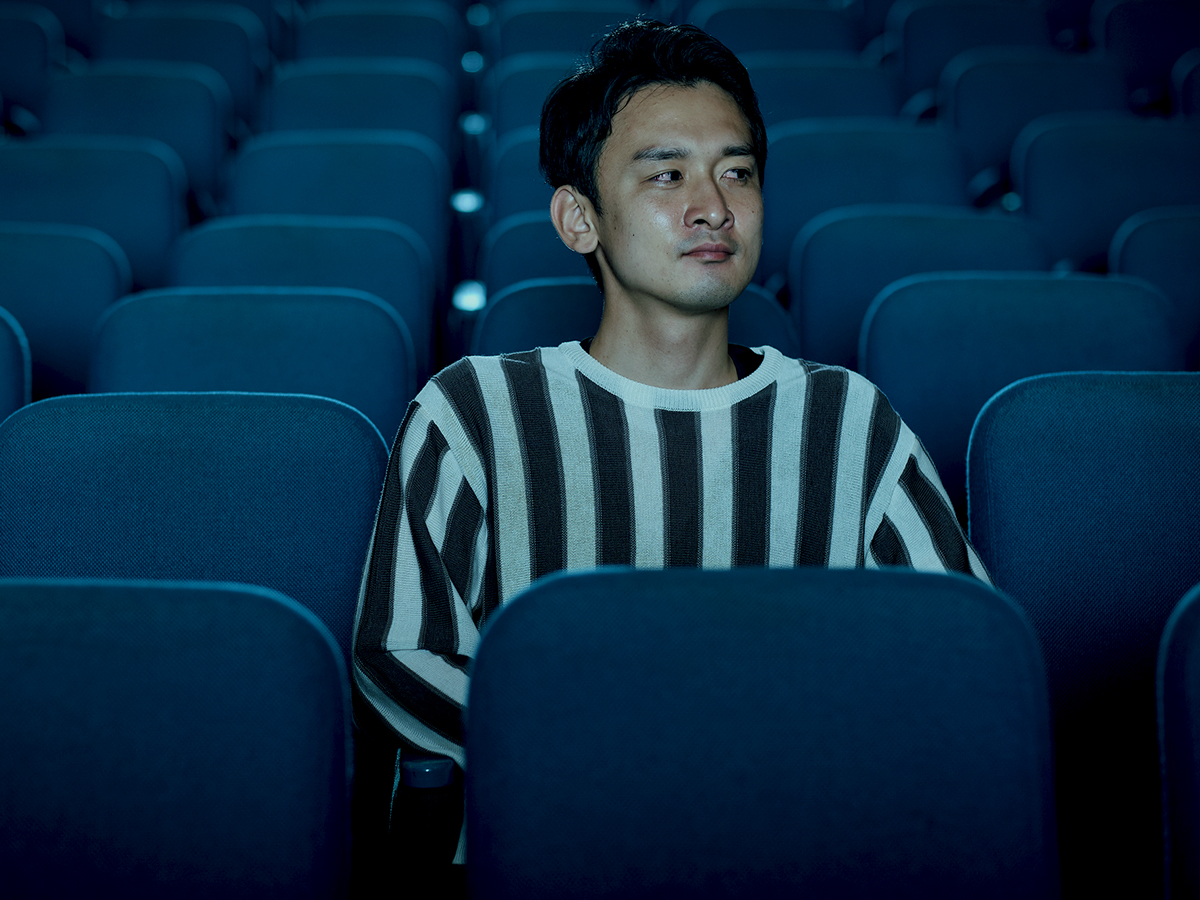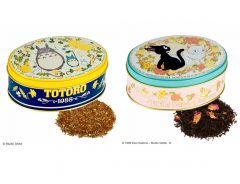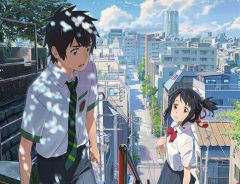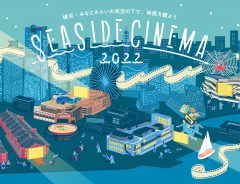
Source: fast&slow © PIXTA | © PR Times, Inc.
Cheering Stifled At “Cheering Format” Showings of Avengers: End Game in Japan
- Tags:
- Avengers / Avengers: End Game / cheering format showing / Japanese culture / MCU / movie culture / moviegoing / Movies
Related Article
-

New Original Tea Blends Inspired by Studio Ghibli Announced by Lupicia and Donguri Republic
-

The Death Note Version Of PPAP Is So Creepy, But Makes So Much Sense
-

J.J. Abrams Is Developing A Live Action Film Of Hit Japanese Anime “Your Name”
-

Music Instrument Maker Roland Co-Invents The Ultimate Bathroom Noise Annihilator
-

Yokohama’s SEASIDE CINEMA 2022 screening Evangelion, Spider-Man and more this Golden Week
-

Studio Ghibli Reveals 5 Planned Areas For Official Theme Park In 2022


Japanese Moviegoing Culture
Unlike movie theaters in many parts of the world where audiences often cheer and react quite vocally to the images on screen, the only noise you are likely to hear in a Japanese movie theater is the rustle of a paper bag, popcorn munching and the occasional cough or a sneeze. Talking in movie theaters is strongly discouraged, and every film begins with an announcement on manners reminding audiences of this fact. Together with the practice of staying in your seat until the lights come on (regardless of whether or not there's a post-credits scene), these are the aspects of moviegoing in Japan which often surprise foreign visitors.
"Cheering Format" Showings
However, in recent years, Japanese movie theaters have implemented special showings of popular films where cheering is not only allowed, but encouraged. According to a 2016 article in the Mainichi Newspaper, the trend started with anime films around 2011 and then moved into live action films. Some anime films, like "KING OF PRISM by PrettyRhythm" were specifically made for fans to sing along to, encouraging such special movie showings. In addition to cheering and singing, you'll also see fans waving light sticks and cosplayers dressed up as their favorite characters.
Avengers: End Game
The blockbuster hit "Avengers: End Game" which is still going strong in Japan, has seen "cheering format" showings on a very large scale, with theater chains implementing them both in major cities and more rural areas.
However, according to an entry on popular Twitter aggregation site Togetter, fans' experiences at such showings have been a very mixed bag, with complaints overshadowing the few reports of successfully implemented showings. The worst seems to have been in rural areas where both audiences and theater operators may have been insufficiently prepared.
Lack of information
For example, Twitter user Maeda's day at the movies was ruined by audience members who didn't know they were in a special showing.
"I went to a cheering format showing of Avengers: End Game. With people yelling "Shut up" or "Shut up, old woman!" to those who were cheering, I thought that people's manners were terrible. I thought people should come to these only after checking the rules of the cheering format showing. Apparently, this being a rural area, they said they didn't know what a cheering format showing was, so the theater staff warned them and they left."
"I've been to many cheering format showings and I know what they're about. People who were cheering at that showing were doing it normally, and they were rather on the quiet side... so when I heard {those complaints}, I couldn't cheer any more. And then someone else jumped on the complaint bandwagon and said: "Shut up," too. I was like, "What's going on here?" The staff had to warn him too."
"Even though I was really looking forward to it, I ended up wishing I hadn't gone at all. I wanted to cheer and enjoy myself more. It was the worst. When it comes to rural areas, if you don't post signs explaining what they're about or hand out fliers listing up the rules, it's tough going. This is the fist time I've experienced this so it's quite a shock (...)"
Things were far worse for Twitter user Maccha:
"The cheering format showing of Avengers: End Game was the worst. I wish I hadn't gone and I'm afraid of going back to that theater and seeing those people again. I've read many tweets about the same problem with the cheering format showing of Avengers: End Game but I also had people telling me "Shut up" and insulting me.
Apparently, these insults continued throughout the showing and even escalated to taunting after the manager came in to warn the misbehaving audience members when Maccha complained.
"The manager can see the seating area through a camera, so he or she can notice this happening and do something about it. Or they can post signs explaining it's a cheering format showing or tell their staff to warn audience members who misbehave. The official site tries to sell these special showings by making announcements and inviting people to come..."
"...but when you go, you get bombarded with curses and insults as if you were doing something wrong? I think that's ridiculous. I went to a cheering format showing because I wanted to cheer for the Avengers but now I'm hurting inside and I can't even think about the movie without remembering what happened. I feel so sad..."
In all fairness to the theaters, whether such showings succeed or fail is partly dependent on the makeup of the audience. However, considering the moviegoing culture in Japan, it's probably a good idea for theaters to do everything they can to inform the audience, if not encourage cheering directly.
Nobody cheering
Whether or not audiences knew what they were getting into, it seems that some cheering format showings had very little cheering going on.
"My thoughts on my experience at the cheering format showing of End Game at Yokohama Lalaport. | NOBODY WAS CHEERING!! | I ended up holding back my tears and it was just like a normal showing (...)
"Sorry for butting into the conversation but I went to the cheering format showing at Burg 13 and it was so much like a normal showing I almost broke out laughing. | I really wanted to shout cheers ... I held back."
Successful showings
Of course, not all reports of cheering format showings were negative. Either by coincidence in the nature of the audience which attended or through careful planning and coordination by the theaters, there were highly successful showings where fans really went all out and had themselves a blast.
For example, take a look at the scene at the Kawasaki CINECITTA':
"I went to the cheering format showing of Avengers: End Game at CINECITTA' in Kawasaki! | (...) I was able to enjoy the movie in the most awesome and most ideal viewing format possible! | Thanks, guys, for a great time!"
It also seems to help when theaters have a staff member who also happens to be a fan, has a sense of humor and knows how to talk to a crowd:
"My thoughts on the cheering format showing of End Game at Nakano Grand Cinemas | There were about 15 audience members | Before the film started, a staff member gave an explanation (I'm working from memory): | 'I hear that the marathon film screenings in Tokyo, Nagoya and Osaka yesterday were a huge success. Unfortunately, the situation in our theater is as you see here.' (audience laughs)"
" 'This must be the influence of Thanos' snap.' (audience laughs) | 'However, the Avengers never give up no matter what crisis they face, so let's do our best to cheer them on!' | This was followed by a Q&A session where the staff wasn't overbearing and showed his appreciation for minor characters. | They showed MCU's video on things to keep in mind during cheering format showings | Movie rolls."
Thinking of attending a cheering format showing in Japan?
If you'd like to attend one of these showings in Japan, search for ōen jōei 応援上映 (cheering format showing) in the movie listings. It's probably a good idea to aim for major cities where there is a higher likelihood you'll be surrounded by people who are both familiar with such showings and fully intend to cheer or show their appreciation of the film. Another thing you can do is check with the movie theater in advance to confirm that they have explanation signs posted or show a special clip before the film begins explaining what the audiences should expect. Finally, there's strength in numbers. Getting a group of like-minded people who are ready to cheer with you will help boost the energy level and maybe even encourage others to cheer (not to mention discourage anyone who has a problem with you doing so).